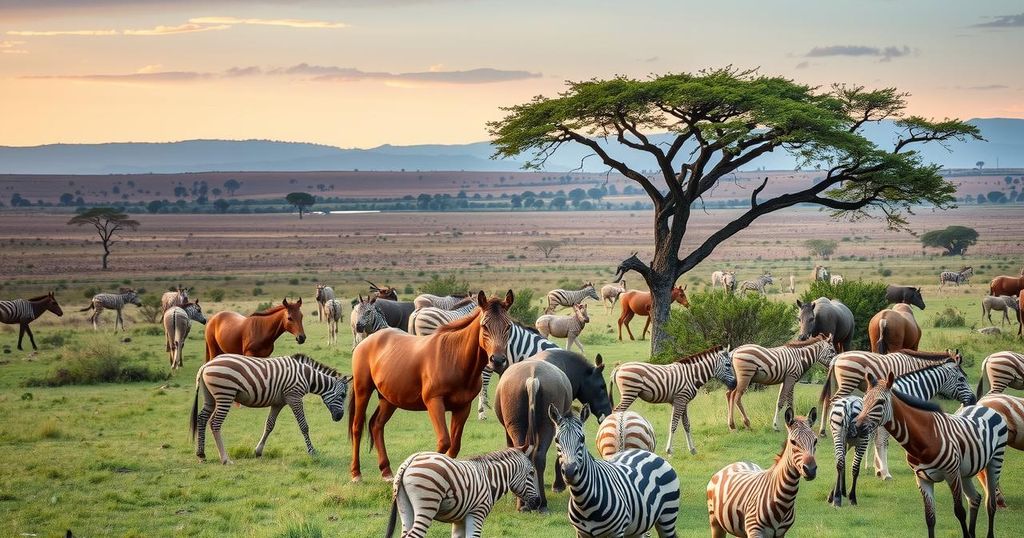Recent changes in rainfall due to climate change are affecting the migration patterns of wildebeest and other species in the Serengeti, with environmental factors leading them to graze in unexpected areas. This disruption raises concerns about the future of one of the world’s largest land migrations, as the ecosystem experiences increased temperatures and erratic weather conditions.
In the vast savanna of Ikorongo Game Reserve, a group of wildebeest can be observed foraging amidst the lush grass, which has flourished due to recent rainfall. Guide and driver Julieth Jones noted, “They found a more nutritious pasture, because it rained here.” Contrary to typical migratory patterns, these wildebeest are grazing in this region during the normally dry season, which Gadiel Tanapa, the park’s ecologist, attributes to changing rainfall patterns.
Annually, various species, including wildebeest, zebras, and other antelopes, undertake one of the world’s most significant migrations, traveling northward to the Maasai Mara reserve in Kenya during the dry months, then returning south for the wet season. Unfortunately, climate change is disrupting this traditional migration cycle. A recent study reported that the Serengeti ecosystem has faced recurrent droughts, irregular precipitation, and a temperature increase of 4.8 to 5.8°C over the past sixty years.
The Serengeti National Park, located in northern Tanzania, is renowned for its diverse wildlife and annual migrations. The cyclical movement of large herbivores, primarily wildebeest and zebras, is closely tied to seasonal changes in food and water availability. However, the recent impacts of climate change, characterized by unpredictable weather patterns and rising temperatures, threaten the delicate balance of this ecosystem. Understanding these changes is crucial for conservation efforts and maintaining the park’s ecological integrity.
In conclusion, climate change is significantly altering the traditional migration patterns of wildlife in the Serengeti, influenced by shifting rainfall and rising temperatures. As species adapt to these changes, it becomes imperative to monitor their behavior to ensure effective conservation strategies are implemented. The health of the Serengeti ecosystem relies on understanding and mitigating the impact of these environmental changes.
Original Source: www.lemonde.fr







